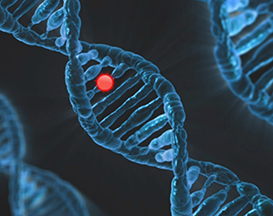
Editor’s Note: The following story has been modified from its original form. Artificial intelligence was used in the creation of this piece and was not the sole work of the author, whose name has been removed. The Northwestern News does not condone the use of AI in the writing of any material that appears in this publication.
World Athletics has announced a controversial new policy requiring chromosome testing for women’s track and field athletes, a decision that has sparked intense debate across the sporting world.
This will make women’s track and field the first Olympic sport to require DNA testing.
While track and field may be the first is likely other women’s sports will follow suite.
The governing body argues that the rule is necessary to ensure fairness in women’s competitions by establishing clear biological criteria for eligibility.
This decision is just the latest in many that spark a debate on whether or not transgender women and gender non-conforming athletes should be allowed in women’s sports.
Under this policy, athletes will have to undergo genetic testing to confirm that they meet the requirements to compete in female events.
Supporters believe this move addresses concerns about athletes with naturally high testosterone levels, which some argue provide a competitive advantage in certain disciplines.
They contend that maintaining distinct categories based on biological differences is essential for preserving the integrity of women’s sports.
However, the policy has been met with significant backlash, with critics calling it discriminatory and an invasion of privacy.
Many argue that such testing is an outdated and overly rigid approach to defining gender in athletics.
The rule has reignited discussions about the complexities of biological diversity and its implications for competitive fairness.
Opponents of the policy emphasize the potential harm it could cause to affected athletes, both emotionally and psychologically.
They argue that requiring genetic testing reinforces narrow and exclusionary definitions of gender, marginalizing individuals whose biological traits do not fit conventional standards.
Critics also warn that the rule could disproportionately impact athletes from regions where gender diversity is less understood or accepted.
The policy raises ethical questions about bodily autonomy and whether sports organizations should have the authority to enforce genetic classifications.
Some experts worry that it could discourage participation in women’s sports, as athletes may fear being subjected to invasive testing.
Advocacy groups have also pointed out that fairness in sports is influenced by numerous factors beyond genetics, such as access to resources and training opportunities. With the rule set to take effect, legal challenges and public outcry are likely to intensify.
The debate underscores a broader conversation about the intersection of science, gender identity and the evolving landscape of competitive athletics.
